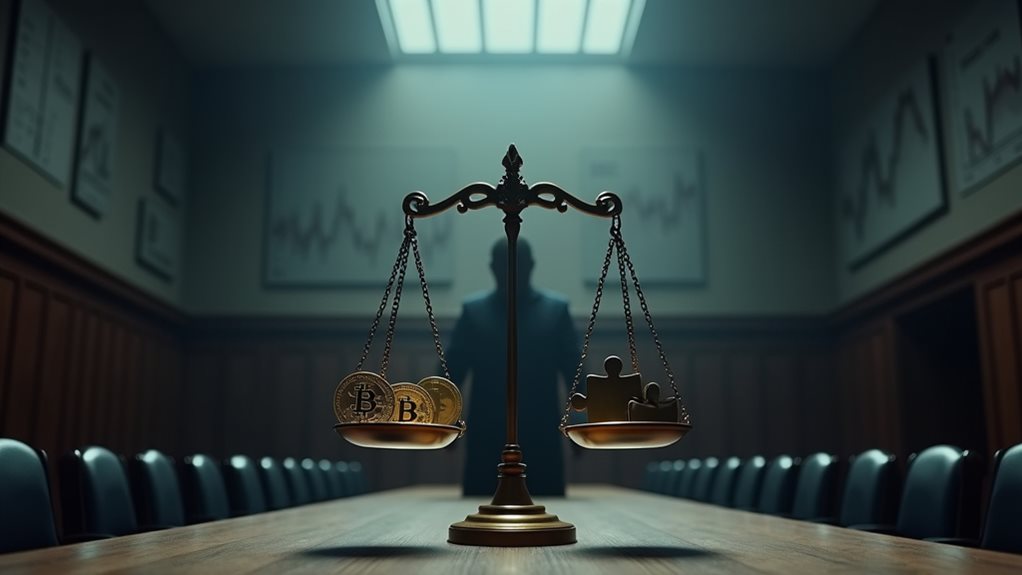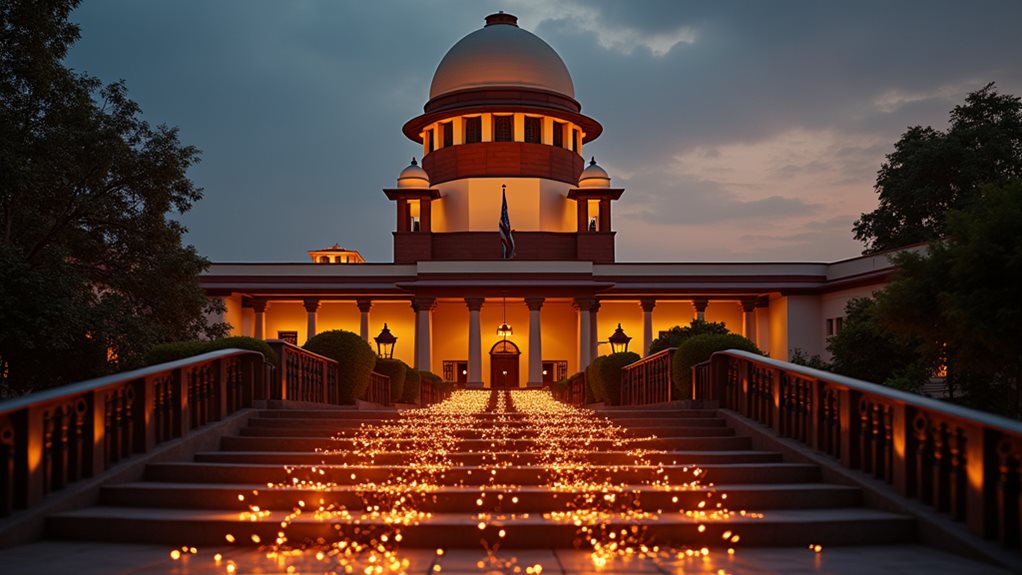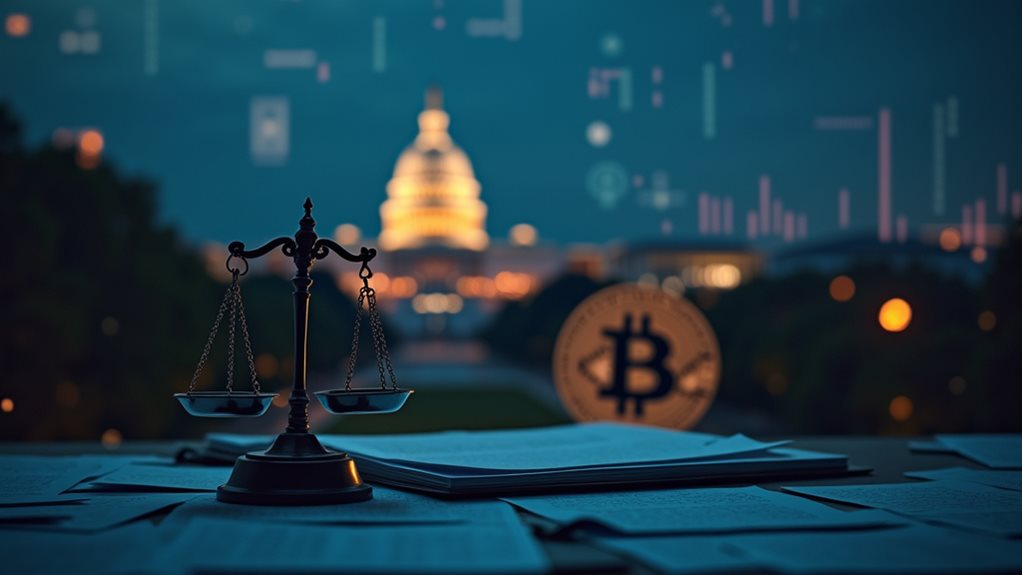India’s Supreme Court isn’t mincing words about crypto’s wild west status. The Court slammed unregulated cryptocurrency trading as a “dangerous parallel economy,” while rejecting outright bans as unrealistic. With 200 million Indian crypto holders and mounting fraud cases, justices are demanding bold regulation instead of the government’s contradictory approach of collecting 30% taxes without proper oversight. In a scathing comparison, Justice Surya Kant likened uncontrolled crypto to hawala networks—and that’s just scratching the surface.

India’s Supreme Court is taking aim at the country’s wild west of cryptocurrency trading. The nation’s highest court didn’t mince words when it called out the elephant in the room: cryptocurrencies are creating a dangerous parallel economy, completely unchecked and unregulated. And they’re not having it anymore.
The court’s stance is crystal clear – regulation beats prohibition. Period. In a particularly pointed observation, the justices called out the government’s head-scratching approach of happily collecting 30% tax on crypto transactions while failing to create any actual rules. Talk about putting the cart before the horse.
Justice Surya Kant didn’t hold back, comparing the unregulated crypto scene to hawala – those notorious underground money transfer networks. The comparison isn’t exactly subtle. Without proper oversight, India’s crypto market has become a playground for fraudsters and a headache for law enforcement. With 200 million crypto holders in India today, the stakes couldn’t be higher.
Unregulated crypto trading mirrors hawala networks, creating a dangerous playground where fraudsters operate freely beyond law enforcement’s reach.
The situation is reaching a boiling point. While the government drags its feet on thorough legislation, the Financial Intelligence Unit is trying to patch things up with money laundering laws. But it’s like using a Band-Aid to fix a broken dam. The 2021 crypto bill remains unpresented to Parliament, highlighting the prolonged policy paralysis.
The lack of clear rules has left businesses and investors in a legal twilight zone, never quite sure if they’re on solid ground. What’s particularly rich is how this regulatory vacuum has created exactly what officials feared most – a shadow financial system that could potentially destabilize the entire economy. Hong Kong’s success with its strict licensing approach demonstrates how proper regulation can foster market stability.
The Supreme Court’s message to lawmakers? Get your act together. The court is pushing for expert input and a structured approach to regulation, aligning with global trends that favor control over outright bans.
The writing’s on the wall: India needs to step up its game. With crypto fraud cases piling up and a parallel economy growing unchecked, the time for half-measures is over. The Supreme Court has thrown down the gauntlet. Now it’s up to the government to prove it can do more than just collect taxes while Rome burns.









